The Jiāyùguān Pass (嘉峪关) Posted by Stephen on Dec 10, 2011 in Culture
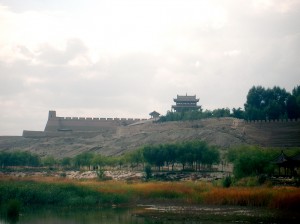 While traveling through Gansu Province, we came across the Jiayu Pass or 嘉峪关 (Jiāyùguān) –the largest and most intact section of the western Great Wall of China. The pass runs through central Gansu acting as a corridor for people traveling between Dunhuang and Lanzhou and marks the frontier of ancient Han culture in premodern times.
While traveling through Gansu Province, we came across the Jiayu Pass or 嘉峪关 (Jiāyùguān) –the largest and most intact section of the western Great Wall of China. The pass runs through central Gansu acting as a corridor for people traveling between Dunhuang and Lanzhou and marks the frontier of ancient Han culture in premodern times.
For centuries, everything outside of the mighty walls was considered the wild west of northwestern China. In these lawless desert plains, Jiayuguan stood as a beacon of the middle kingdom, representing order and civility. It was the tip of the spear for Chinese western expansion and a safe haven for weary merchants, returning from their desert trek on the Silk Road.
In ancient times, this pass was a stronghold for the Han Chinese, and became one of the most fortified sections of the Great Wall. Remnants of the ancient Great Wall are still in place, but have been warn down, due mainly to lack of up-keep, conflict and erosion from the desert winds.
The 嘉峪关乡 (Jiāyùguānxiāng) castle stands outside modern day Jiayuguan City (嘉峪关市 [Jiāyùguānshi]) by the ancient Great Wall. While much of the castle has been rebuilt to accommodate tourists, the grounds are still fun to wander around in. Here, Han Culture dominates, which is evident from the architecture, clothing, food and people that live in this area.
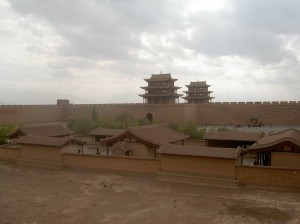 At the Fort, tourists can come to marvel at the elaborate defensive perimeter system from which thousands of archers would ensnare their victims within an outer courtyard, and reign down arrows on unsuspecting invaders. You can also enjoy watching traditional opera, plays and even try your luck dressing up as a 12th century “knight”.
At the Fort, tourists can come to marvel at the elaborate defensive perimeter system from which thousands of archers would ensnare their victims within an outer courtyard, and reign down arrows on unsuspecting invaders. You can also enjoy watching traditional opera, plays and even try your luck dressing up as a 12th century “knight”.
There isn’t much else to do outside of the castle and Great Wall remnants, other than relax by the East Lake (东湖) and enjoy some food and drink. Unlike Dunhuang, Xiahe, Urumqi and Kashgar, Jiayuguan is distinctly Chinese, and stands as a beacon of Hanliness in an area surrounded by Turkic Muslims, Mongolians and Tibetans.
That being said, there are a large amount of ethnically muslim Han Chinese here (called the Huímín or 回民–literally “return folk”). While Han Chinese in ethnicity, they do disassociate themselves from regular Chinese in a few ways: the men wear little white hats, the women wear white shawls, they don’t drink alcohol and of course, and they don’t eat pork or 猪肉, arguably Chinese peoples’ favorite meat. Let me just say it was heavenly to have some 猪肉白菜饺子 (pork and cabbage dumplings) after weeks of only lamb or yak. Mmmmm…非常好吃! *Drooling*
Jiayuguan felt like home away from home, which is strange to say as a foreigner in China. This was clearly the point where, historically, China said, “this is the front door to our kingdom, this is the beginning of western China”. While Kashgar, Dunhuang and Urumqi are frontier cities, the Jiayuguan Pass became the cutoff point between civilized China and the wild west. Your last bastion of Chinese culture, customs and rule of law ends after this wall:
I wonder if maybe history is repeating itself in the Gansu-Xinjiang provinces. Unlike most eastern and southern provinces of China, these two western areas, filled with minorities, seem to still be at the “frontier” stages of their development–even after thousands of years.
Check out the gallery below:
Follow Steve on twitter: @seeitbelieveit

Build vocabulary, practice pronunciation, and more with Transparent Language Online. Available anytime, anywhere, on any device.
About the Author: Stephen
Writer and blogger for all things China related. Follow me on twitter: @seeitbelieveit -- My Background: Fluent Mandarin speaker with 3+ years working, living, studying and teaching throughout the mainland. Student of Kung Fu and avid photographer and documentarian.



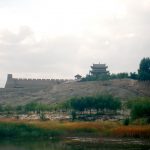
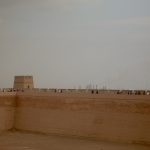
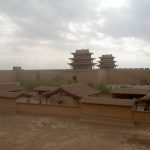
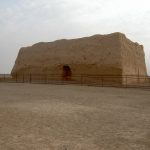
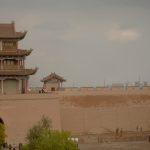
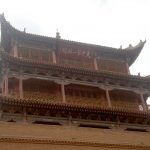
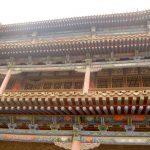
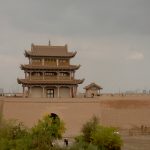
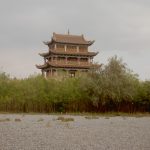
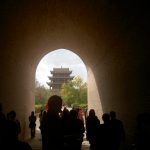
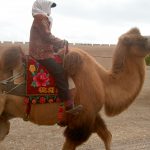
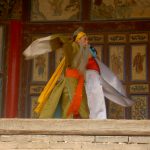
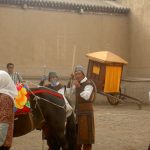
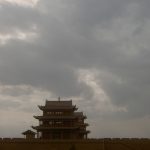
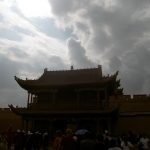

Comments:
samson harry:
Interesting provides good background info about China like to know more such info Is china’s policy of the past to keep itself aloof fm the outside world had undergong a big change ? Is it going to help the masses to march forward slowly towards Democratic system in it own form that is good points of the west deomcratic system & strict control of its pary sysetem
Like to know ur comments & veiws pl
thanks